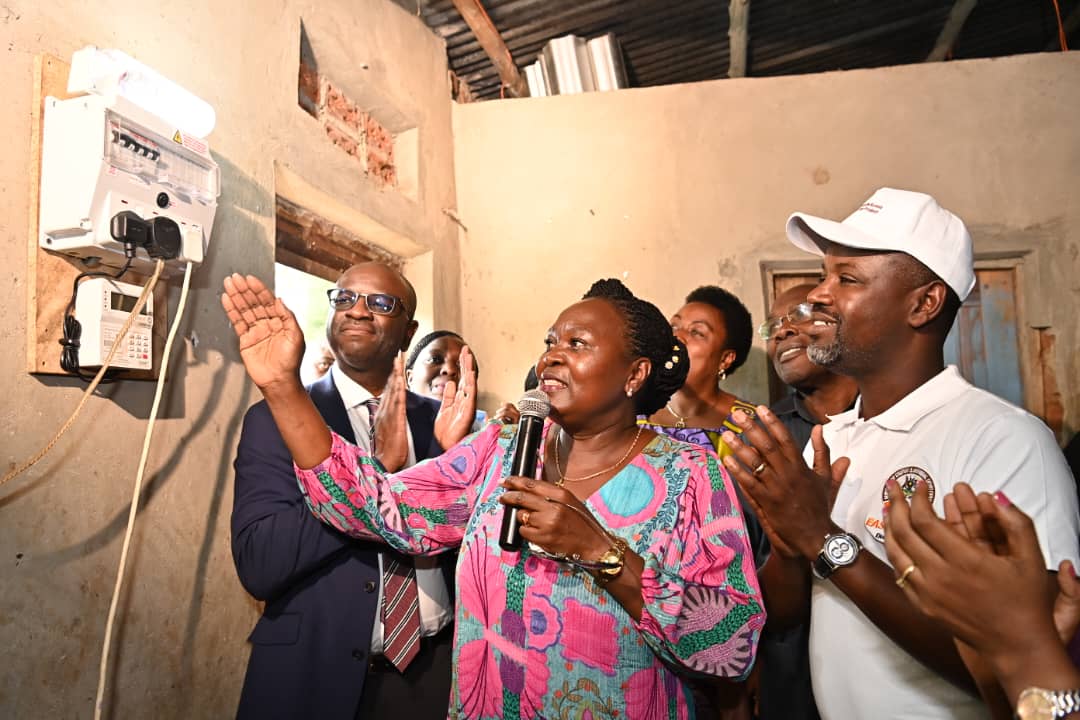 The Deputy Speaker of Parliament, Thomas Tayebwa, has applauded a multi-billion government programme that seems to connect more than 1.3 million rural households to the national power grid.
The Deputy Speaker of Parliament, Thomas Tayebwa, has applauded a multi-billion government programme that seems to connect more than 1.3 million rural households to the national power grid.
According to officials in the Energy ministry, this will be achieved through the Electricity Access Scale-up Project (EASP).

At the launch of the project in Mitooma District on Friday, Tayebwa who also doubles as the area MP, talked of “a pivotal initiative that holds the promise of transforming lives in rural communities.”
Launched in his constituency (Ruhinda North), the deputy speaker explained how the EASP will transform lives, increase access to energy for households, commercial enterprises, and public institutions.

“As the deputy speaker of parliament of Uganda and the area Member of Parliament, I stand here not justify as a representative of the people but as a believer in progress and development,” Tayebwa said.
The $638m project is co-funded with the World Bank and seeks to increase energy access for households, enterprises, and institutions through grid and off-grid connections, aligning with Uganda’s Vision 2040, NDP II and III, and SDG 7 for universal energy access by 2030.
Tayebwa explained that the collaboration between the World Bank and the government of Uganda through the Ministry of Energy and Mineral Development, exemplifies the power of partnerships in fostering sustainable development
“As we launch this project, I extend appreciation to the World Bank for the financial support, which is a testament to their belief in our shared vision for a more prosperous future,” said Tayebwa.
The Minister of Energy and Mineral Development, Ruth Nankabirwa promised that by 2030, all Ugandans will have full access to electricity as a result of EASP.
Nankabirwa explained that the Electricity Access Scale-up Project which is structured around grid expansion, financial intermediation, and refugee host community support, underscores government commitment to comprehensive development.
“The connections will benefit 4.5 million people of which 300,000 are female-headed households, for both household and commercial establishments in line with the Electricity Connections Policy 2018 and Energy Policy 2023,” she said during the launch.
Nankabirwa also joined Tayebwa in praising the World Bank for its generous support.
“Their partnership is instrumental in realizing the goals of this project and enhancing Uganda’s energy infrastructure,” she said.
Irene Bateebe, the Permanent Secretary at the Ministry of Energy and Mineral Development said that the project allocates financing for energy access in refugee host communities, extending electricity access to settlements and host district communities through grid networks or stand-alone solar technologies.
Mitooma District Woman MP Juliet Agatha thanked the President for steering the country in the right direction and praised the new power project in the district. She complained that most of the sub counties don’t have access to electricity and asked Energy Ministry to extend power to all areas so that people can use it to improve their household incomes.
Buhweju County Member of Parliament Francis Mwijukye described the project as a massive boost to development.
“It also improves the value of land wherever it passes. When electricity goes through your land, its value goes up. Am therefore here in Mitooma to show our readiness as Buhweju to welcome the Electricity Access Scale-up Project,” Mwijukye said.
The Electricity Access Scale-up Project will be implemented over five years and will support the Government’s efforts to increase access to electricity for households, refugee and host communities, industrial parks, commercial enterprises, and public institutions to spur socio-economic transformation, in line with Uganda’s Vision 2040 and other Government policies.
The project represents a crucial step towards achieving Uganda’s goal of universal energy access by 2030. By bringing electricity to millions of households, the project will not only transform lives but also contribute to Uganda’s social and economic development.
Access to electricity will enable businesses to flourish, creating employment opportunities and fostering local economic growth.
The EASP activities aim to build on earlier Government initiatives in the energy sector, to support the expansion and strengthening of the electricity distribution network, scale up service connections within the network, and increase access to off-grid electricity in refugee settlements and their host communities (outside the existing electricity distribution network), and to scale up clean cooking services and technologies.
